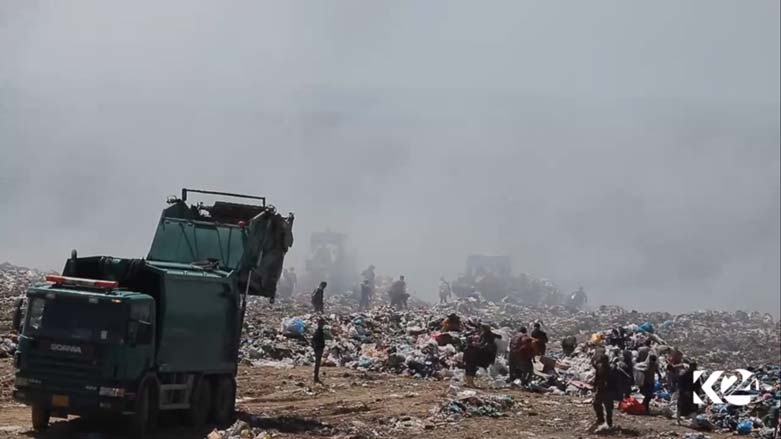Kurdish environmentalists call upon KRG to recycle

ERBIL, Kurdistan Region (Kurdistan24) – Kurdistan Regional Government (KRG) should find a way to recycle and re-use the garbage that they already spend a massive amount of money to dispose of, said a Kurdish environmentalist on Thursday.
In Erbil province alone, over 2,000 tons of trash are collected every day by 15 municipalities and eight private companies. The garbage is moved to a place far from the city center, but people near the area complain that the bad smell gets to their homes and pollutes the air.
“KRG should have a plan to bring in the recycling companies, or find a healthy and sustainable way to produce gas and important resources from it in order to benefit from consumed products,” Aso Shikak, a Kurdish environmentalist told Kurdistan24 on Thursday.
Ari Salim, another Kurdish environmentalist, believes that it is better for KRG to start recycling now before it becomes a “catastrophe” for the people of the Region in the future.
Recycling has become the source of many important resources in different countries. There are few recycling companies in the Kurdistan Region, but according to the KRG officials, the government has been unable to bring more companies to recycle and establish long plans due to the financial crisis in the Region.
Director of Erbil municipalities and environment protection services Karwan Jabari told Kurdistan24 that recycling is a huge investment, and it is a long-term project.
“Recycling is not for a couple of years. It is a long-term project as long as 25 years or more, and it needs substantial financial means,” Jabari said.
Additionally, he believes that Kurdish local companies are unable to recycle now. Therefore, there is a need for foreign companies to get the job done, “and turn the trash in the Kurdistan Region to finance.”
With efficient budget and planning, a source of environmental issues can turn into a source of income.
Reporting by Mewan Dolamari
Editing by Ava Homa
